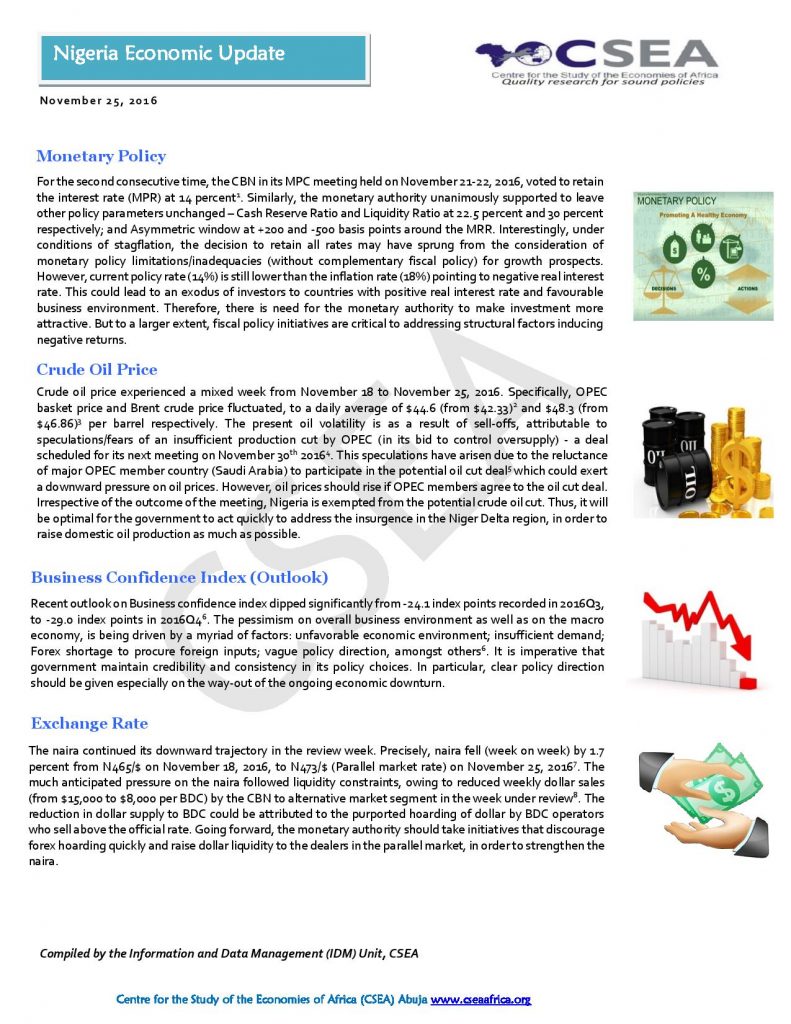Macroeconomic Report & Economic Updates

December 1, 2016
Nigeria Economic Update (Issue 50)
Crude oil price experienced
a mixed week from November 18 to November 25, 2016. Specifically, OPEC basket
price and Brent crude price fluctuated, to a daily average of $44.6 (from
$42.33)and $48.3 (from $46.86)per barrel
respectively. The present oil volatility is as a result of sell-offs,
attributable to speculations/fears of an insufficient production cut by OPEC (in
its bid to control oversupply) – a deal scheduled for its next meeting on
November 30th 2016. This speculations have arisen due to
the reluctance of major OPEC member country (Saudi Arabia) to participate in the
potential oil cut dealwhich could exert a downward pressure on oil
prices. However, oil prices should rise if OPEC members agree to the oil cut
deal. Irrespective of the outcome of the meeting, Nigeria is exempted from the
potential crude oil cut. Thus, it will be optimal for the government to act
quickly to address the insurgence in the Niger Delta region, in order to raise domestic oil production as much as
possible.
